Industry News
Why RapidAdvance Is Now Rapid Finance
February 7, 2019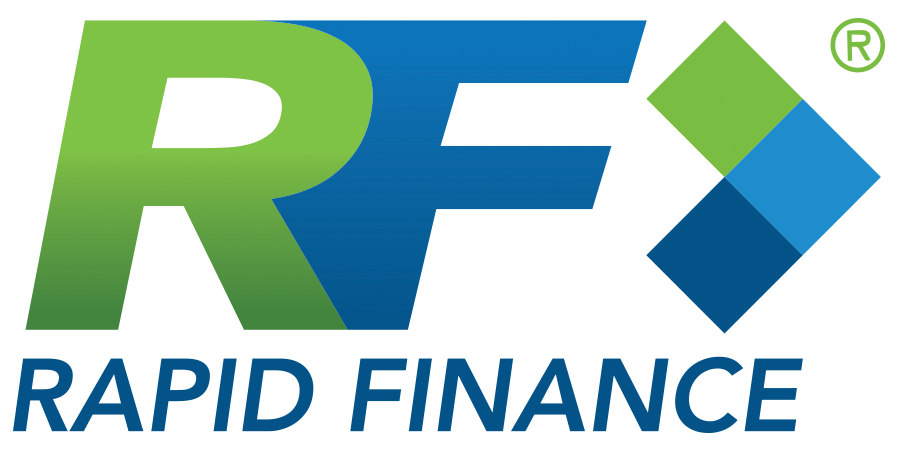 RapidAdvance has officially changed its name to Rapid Finance.
RapidAdvance has officially changed its name to Rapid Finance.
“The term ‘advance’ is out of favor these days,” said founder and Chairman of Rapid Finance Jeremy Brown. “It also doesn’t reflect who we are as a company or what our brand is. We put our clients in a variety of different financing solutions including factoring, term loans and equipment leasing. ‘Advance’ is very narrow and old school. ‘Finance’ represents where the company has evolved to and where we’re going.”
The company’s logo is also new, but Brown said that they purposely retained the same color scheme to make the change as seamless as possible.
“Before we had an arrow through the word ‘rapid,’” Brown said. “I think the three squares [in the new logo] represent an arrow head so that there’s continuity with the old logo.”
Consistent with the rationale for the company’s name change, Brown said that their business is about 85% term loans and only 15% merchant cash advance, healthcare cash advance and bridge loans. Through partners, Rapid Finance also provides their customers with access to SBA loans, factoring, asset based loans, commercial real estate and lines of credit. By the second quarter of this year, Brown expects that they will offer their own line of credit product.
Rapid Finance is broadly diversified by business type, according to Brown. He said that no business category accounts for more than 25% of their business. As for acquiring new business, Brown said that 60% comes from partners/brokers and 40% comes from their internal direct marketing efforts.
Brown said that Rapid Finance, which employs about 200 people, has hired about 25 over the last six months. Most of the hires were in the technology and sales departments, both internal sales and sales reps who work with ISO partners. He also said they expect to fund between $550 and $600 million this year.
Founded in 2005, the company’s employees are divided between its headquarters in Bethesda, MD and another office in Detroit, MI, which houses Rapid Finance’s direct sales and marketing teams.
deBanked CONNECT Miami 2019 Photos
January 28, 2019



















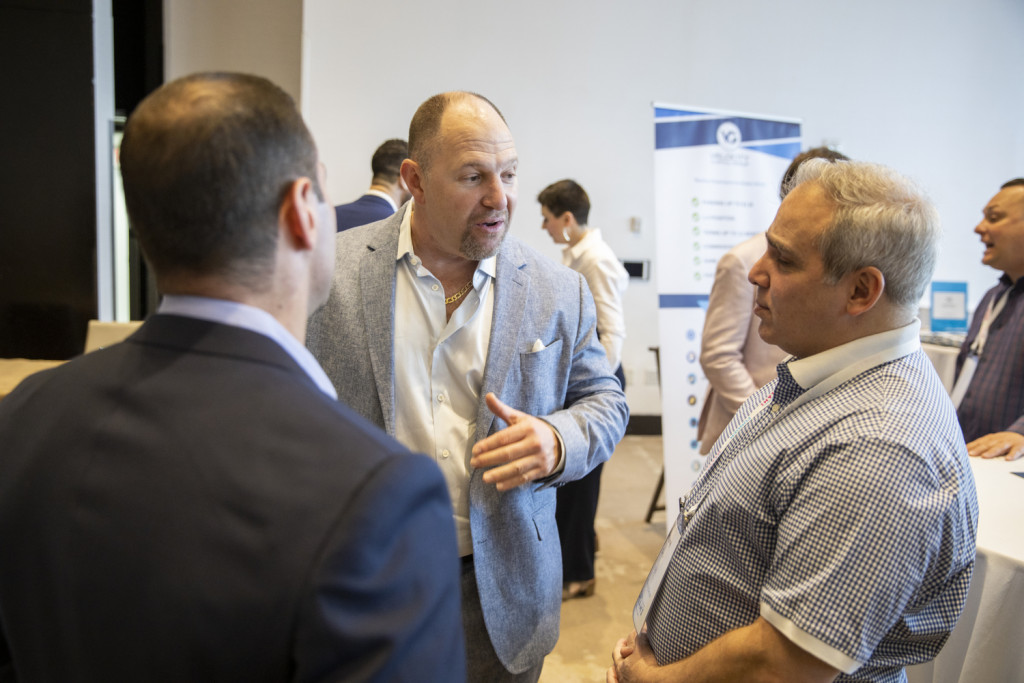
















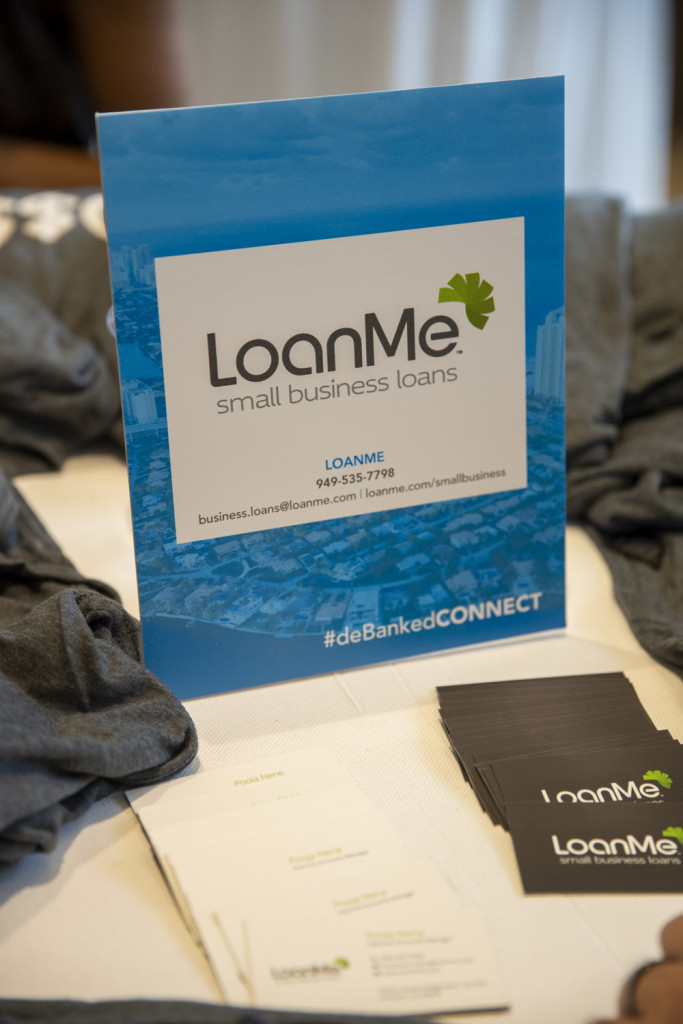













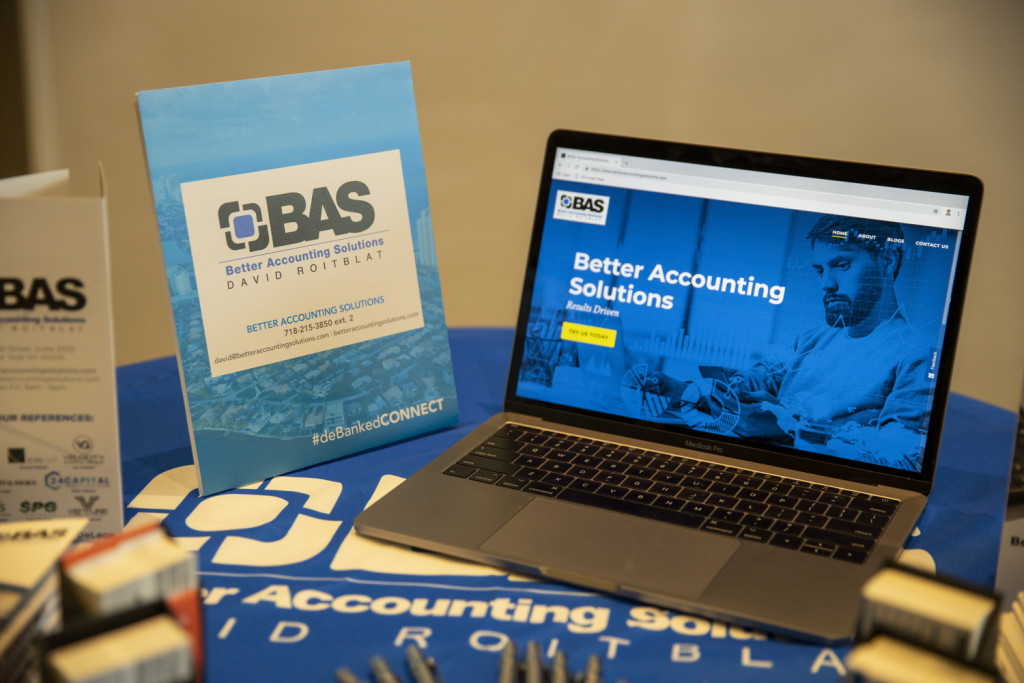

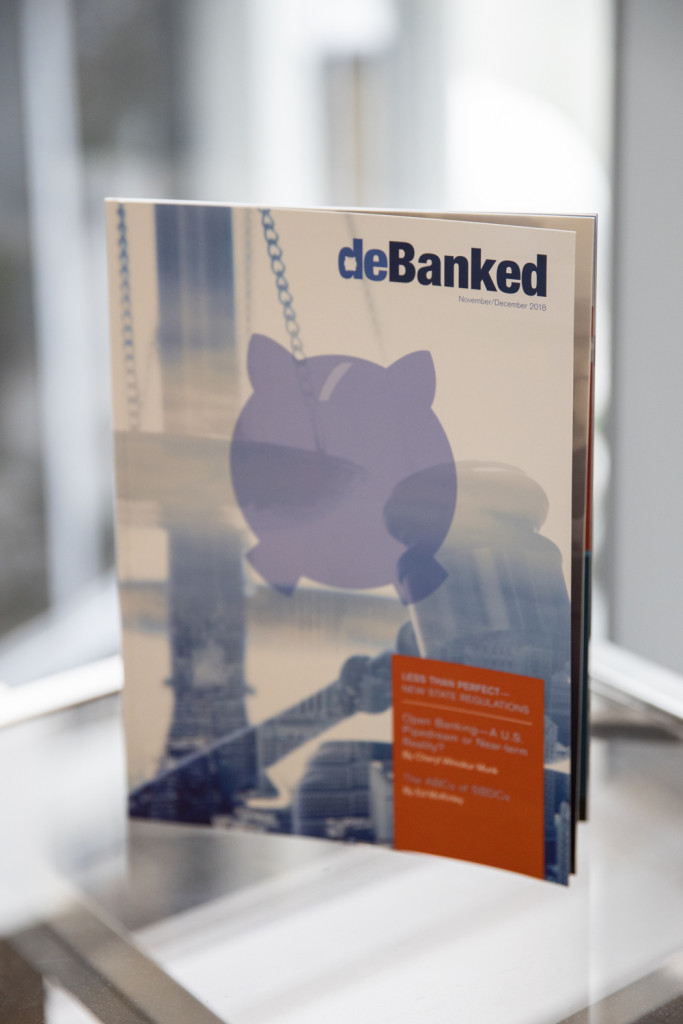










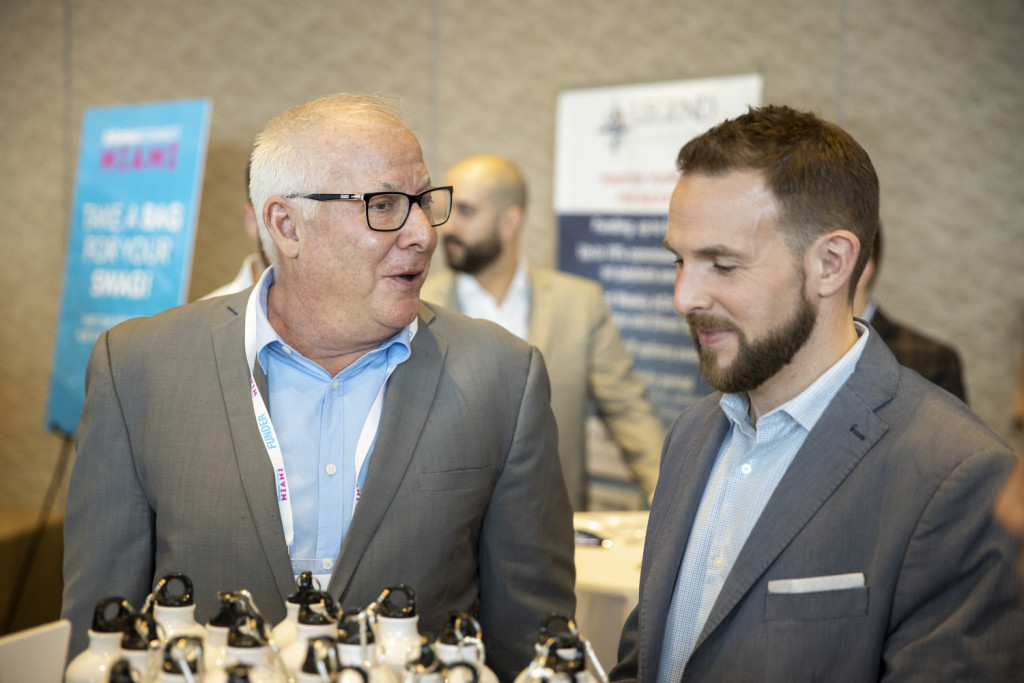









































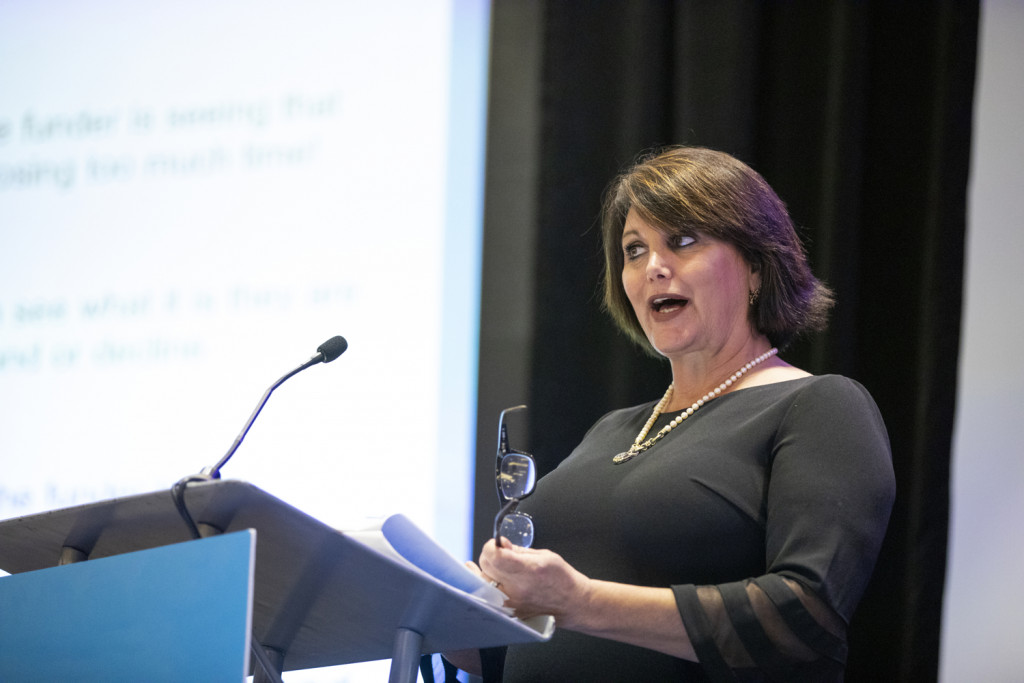
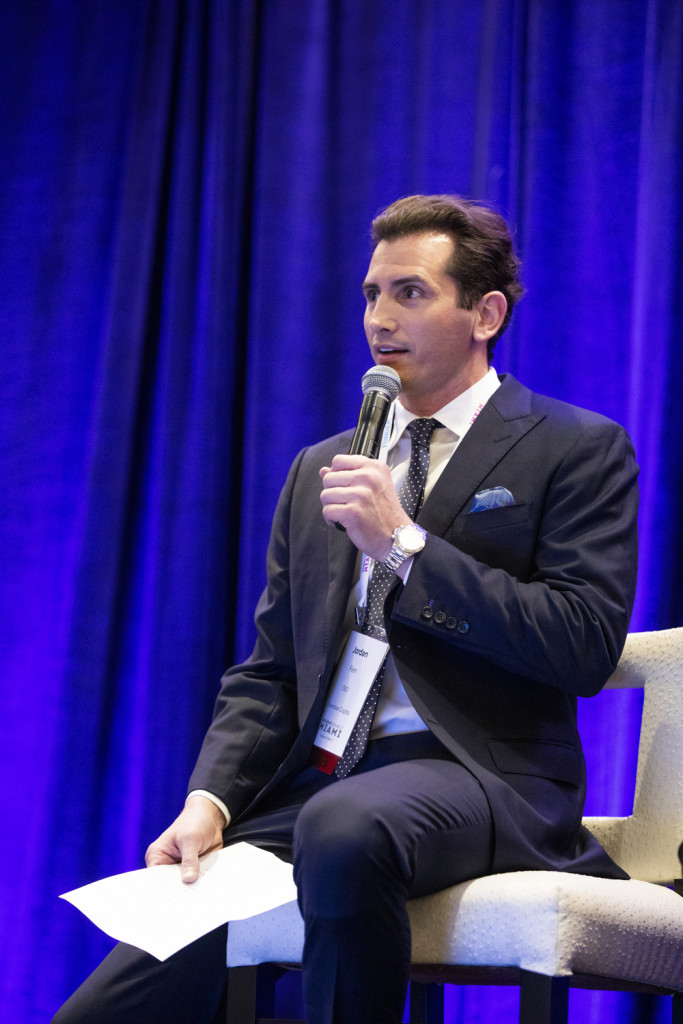


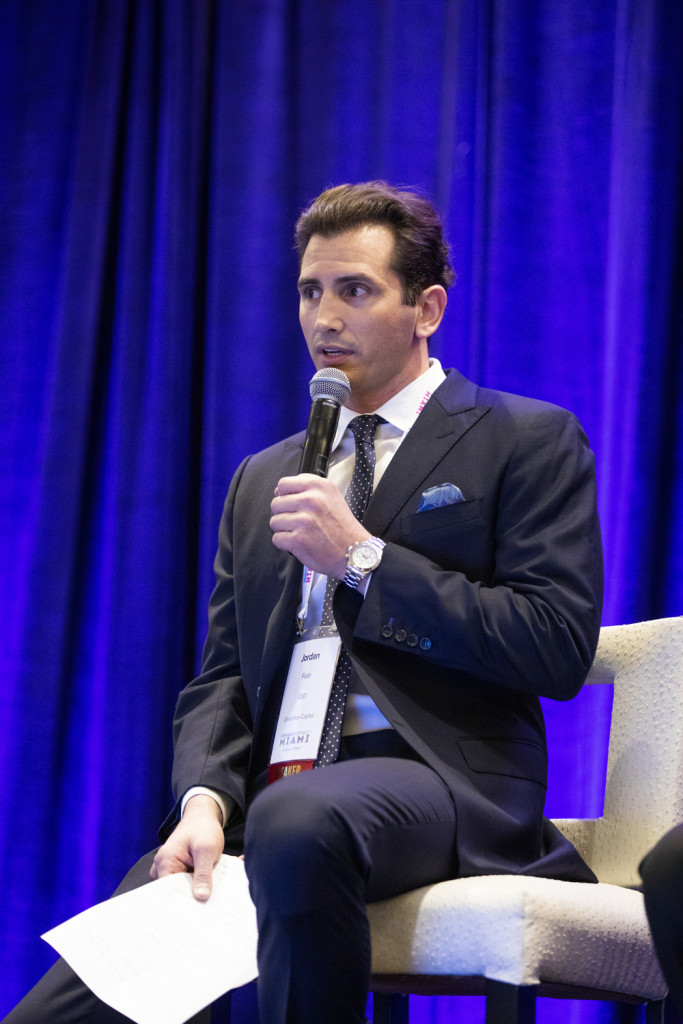



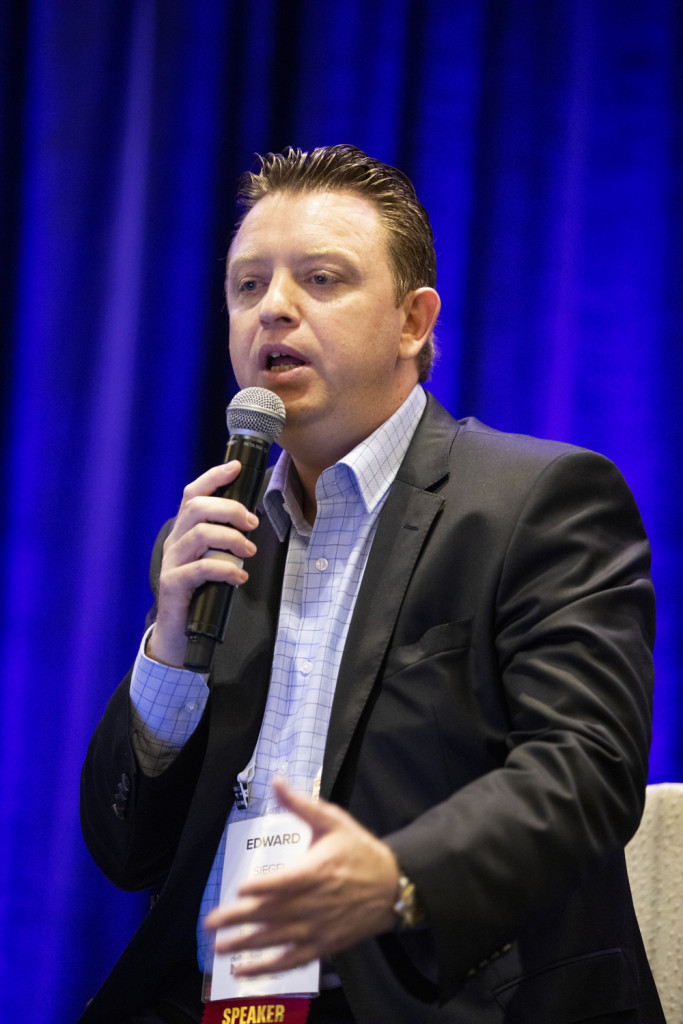






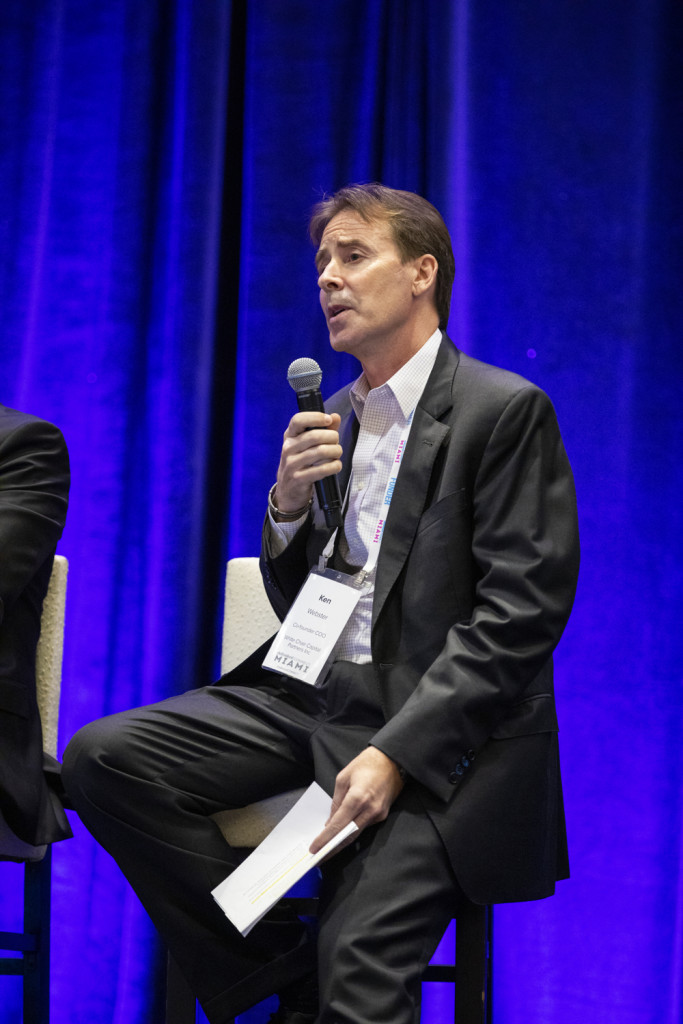














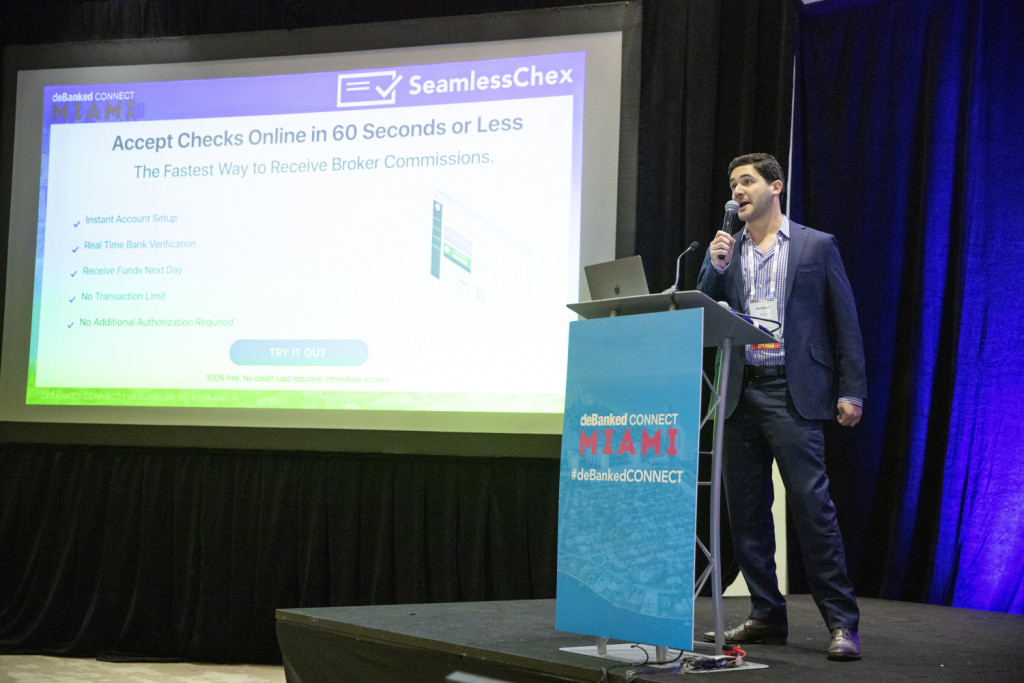
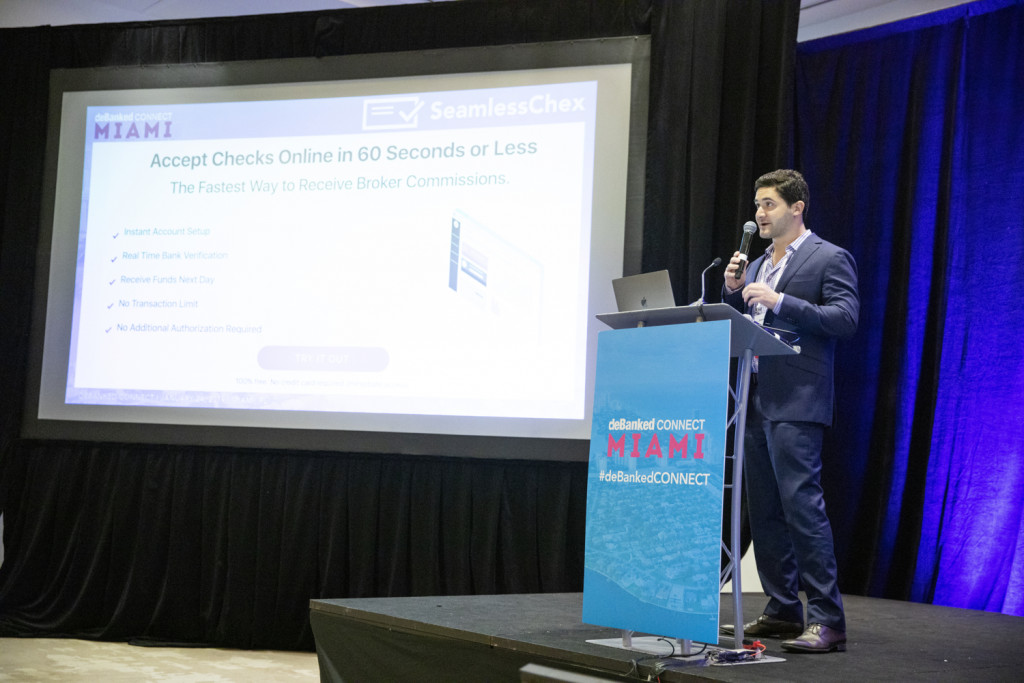




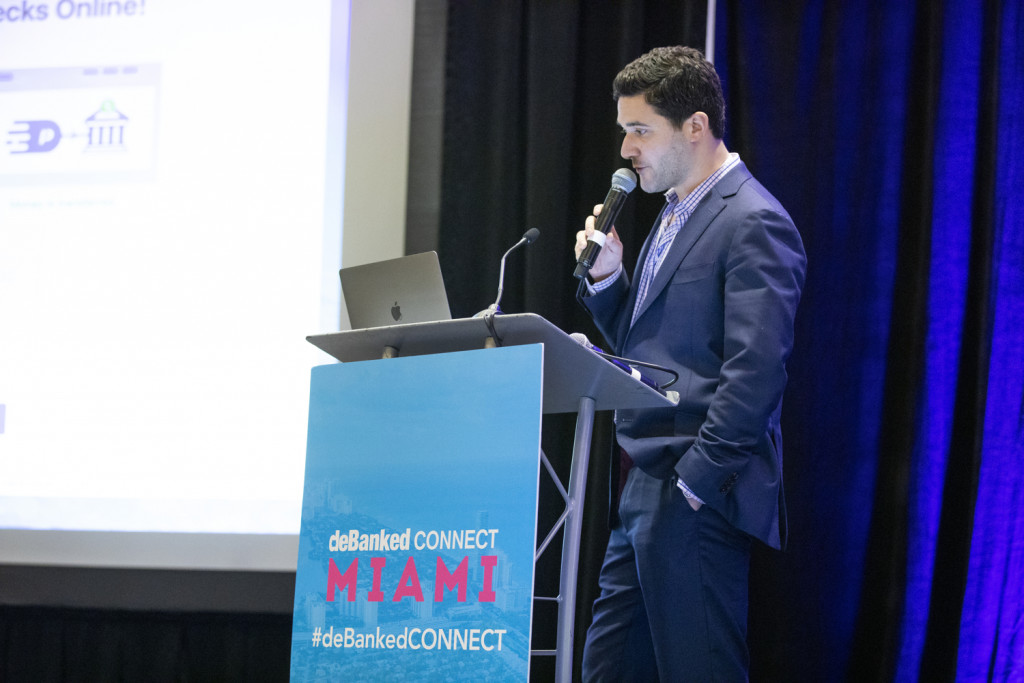
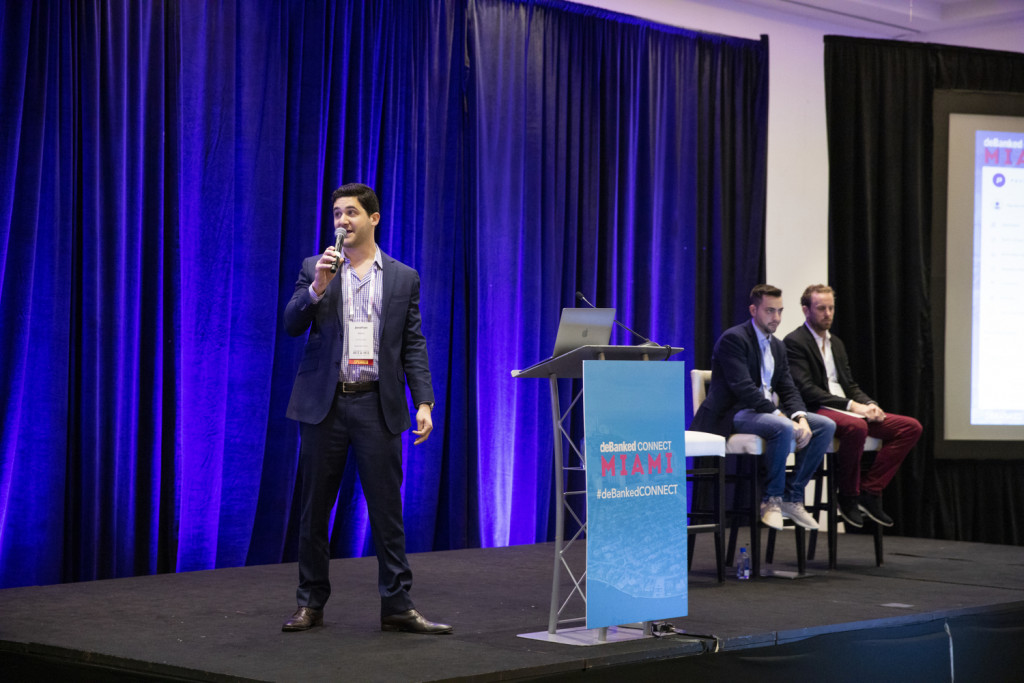

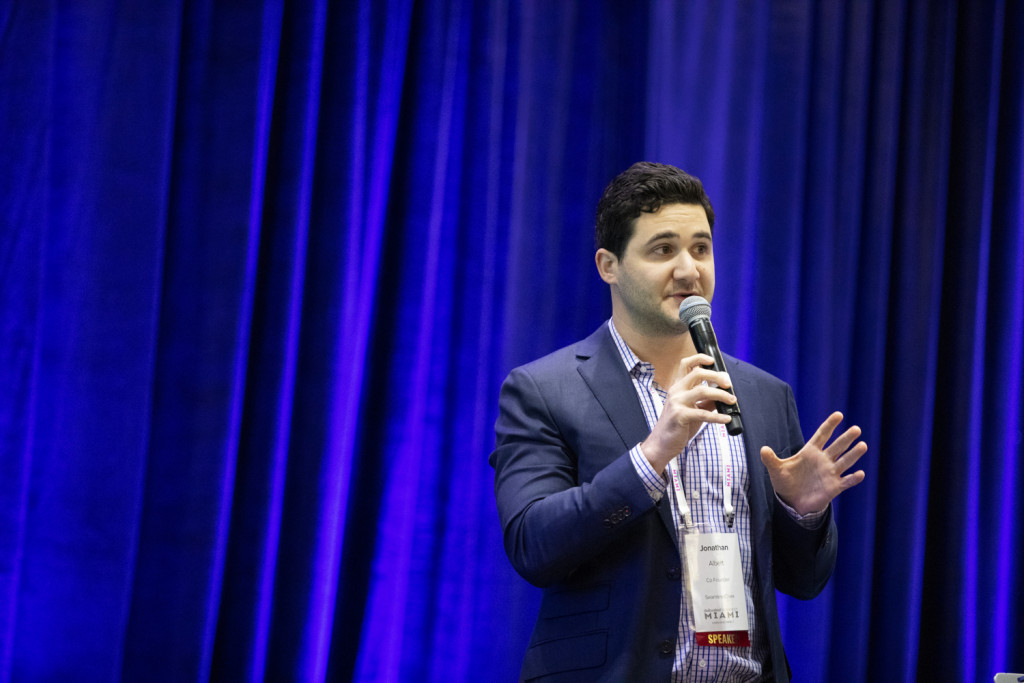





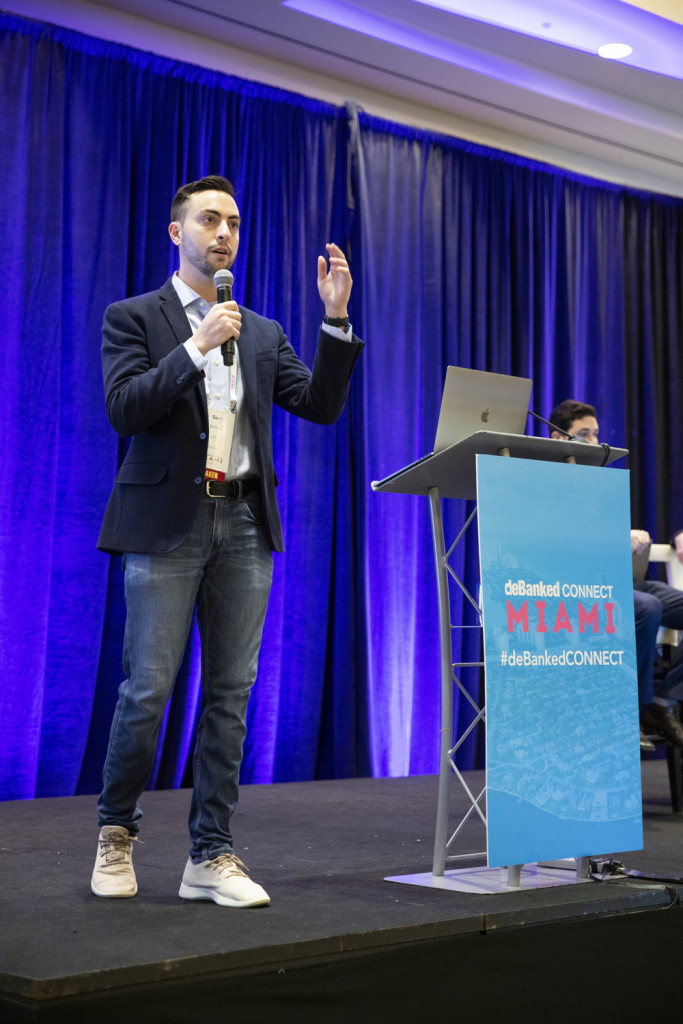




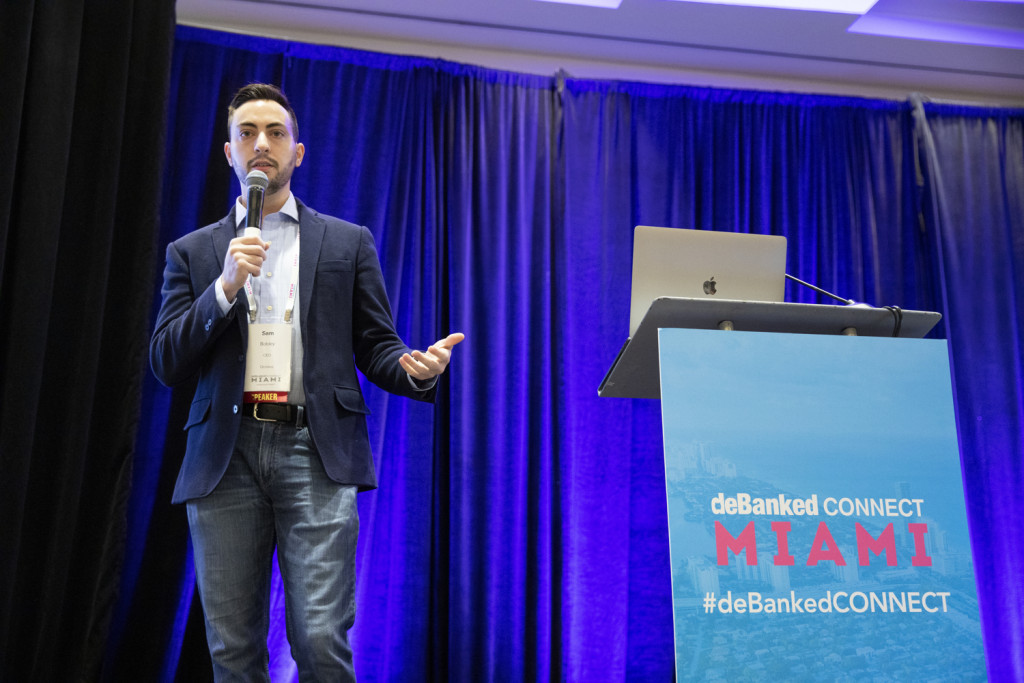







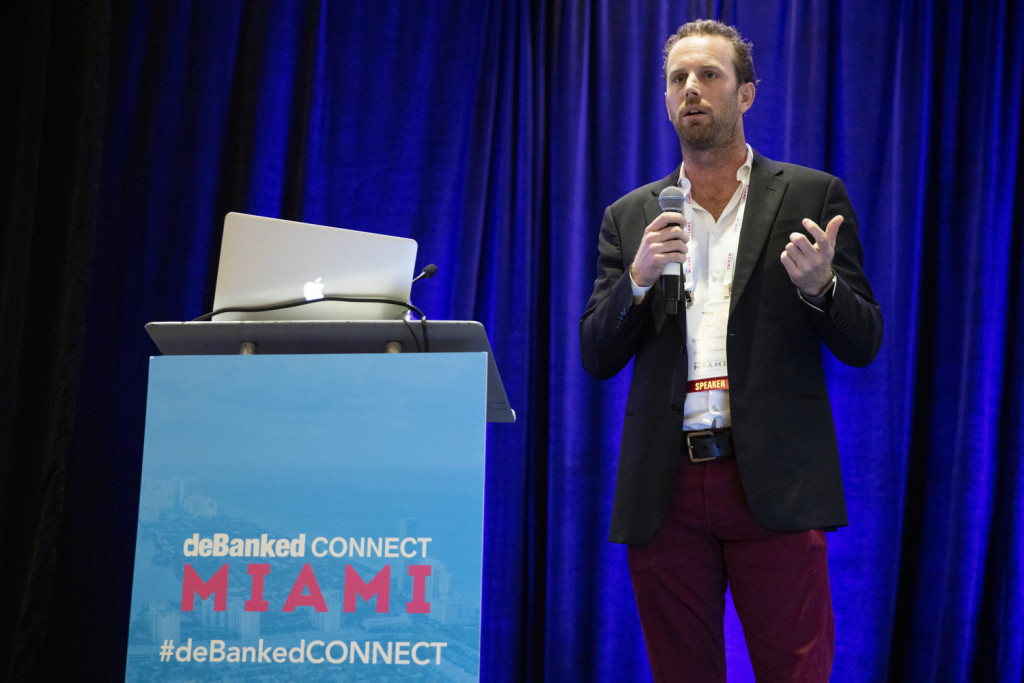
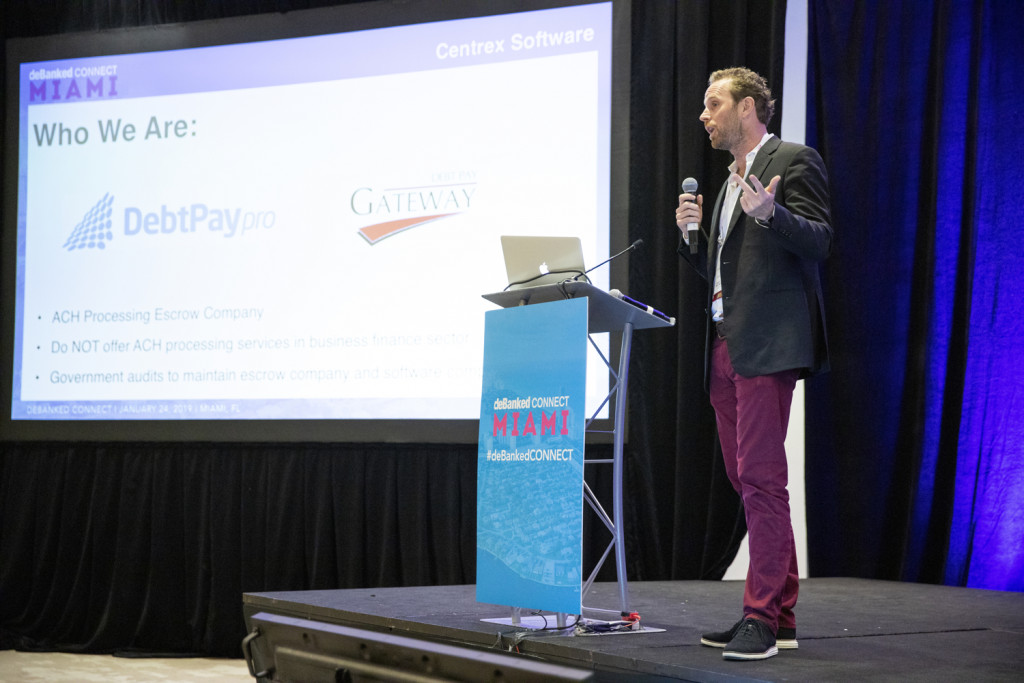
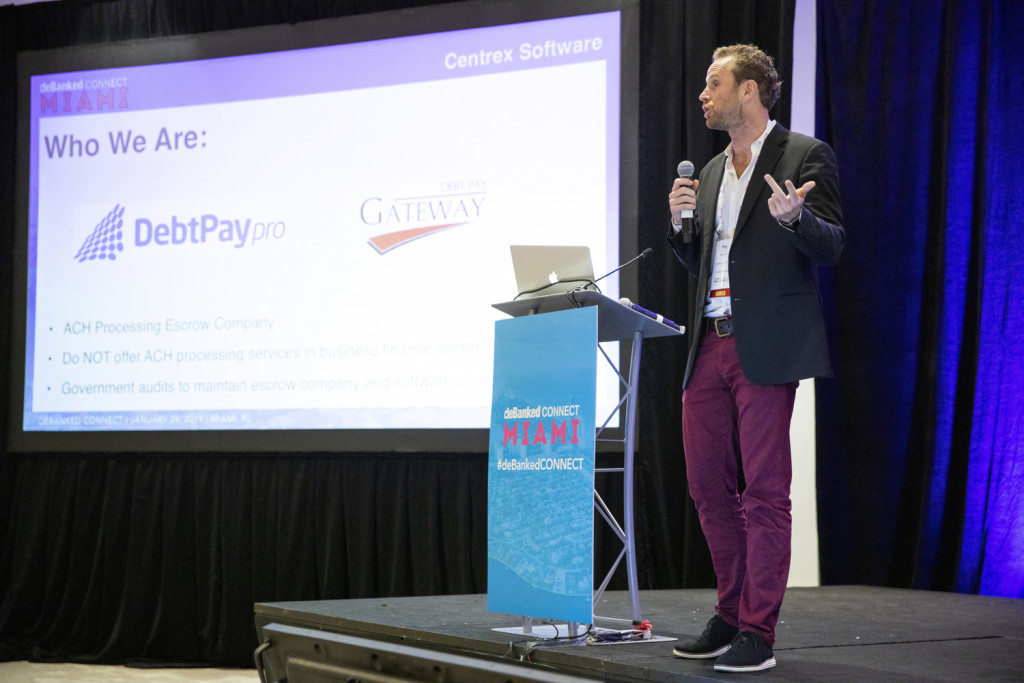

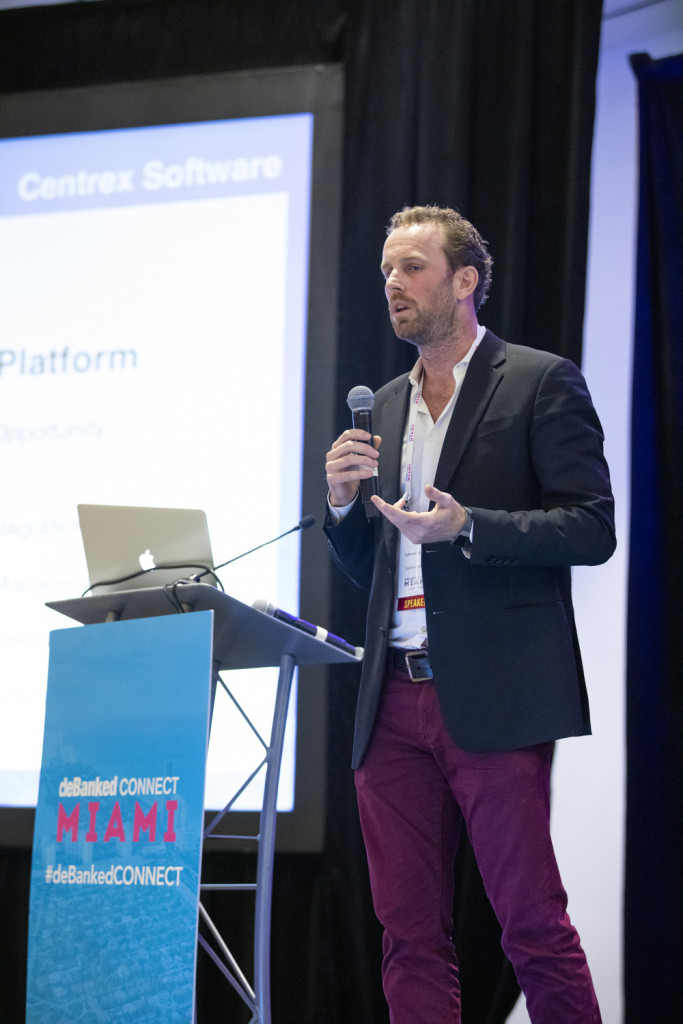



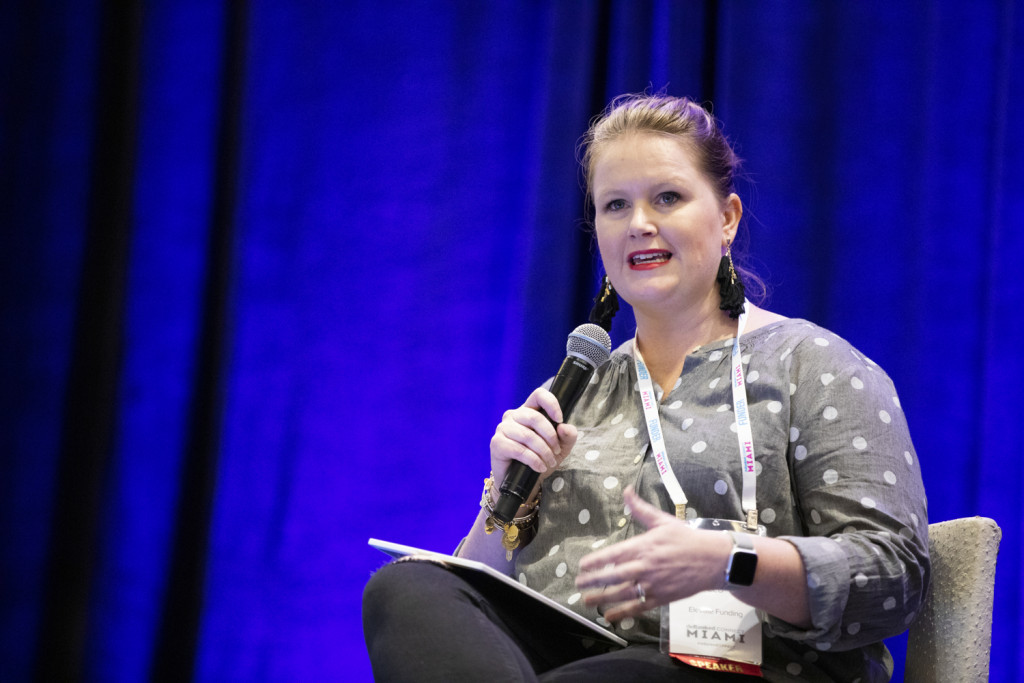
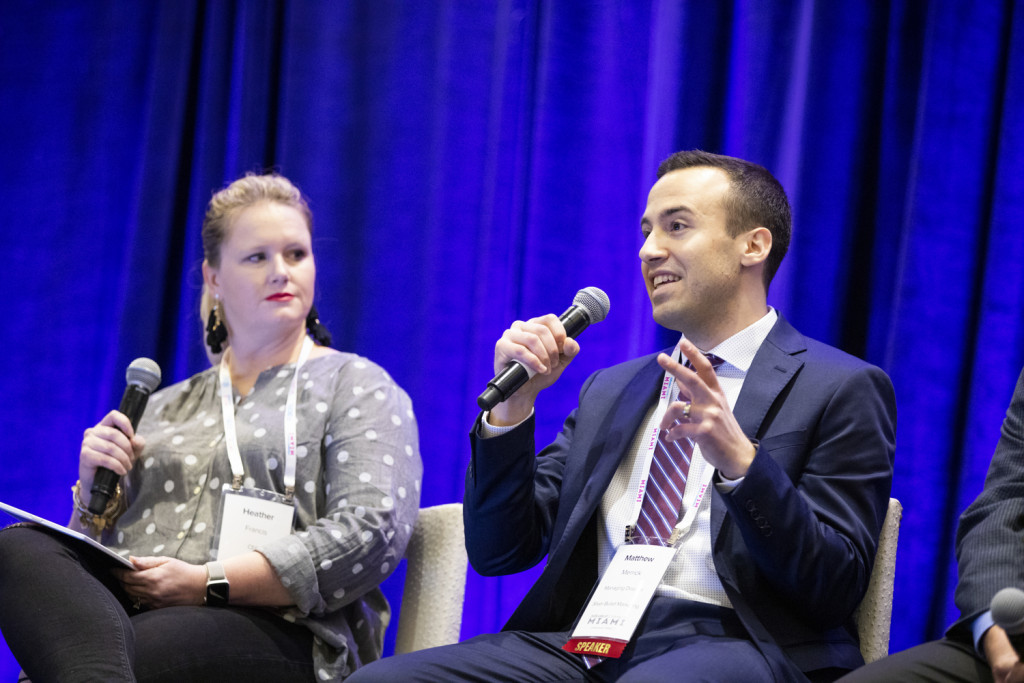
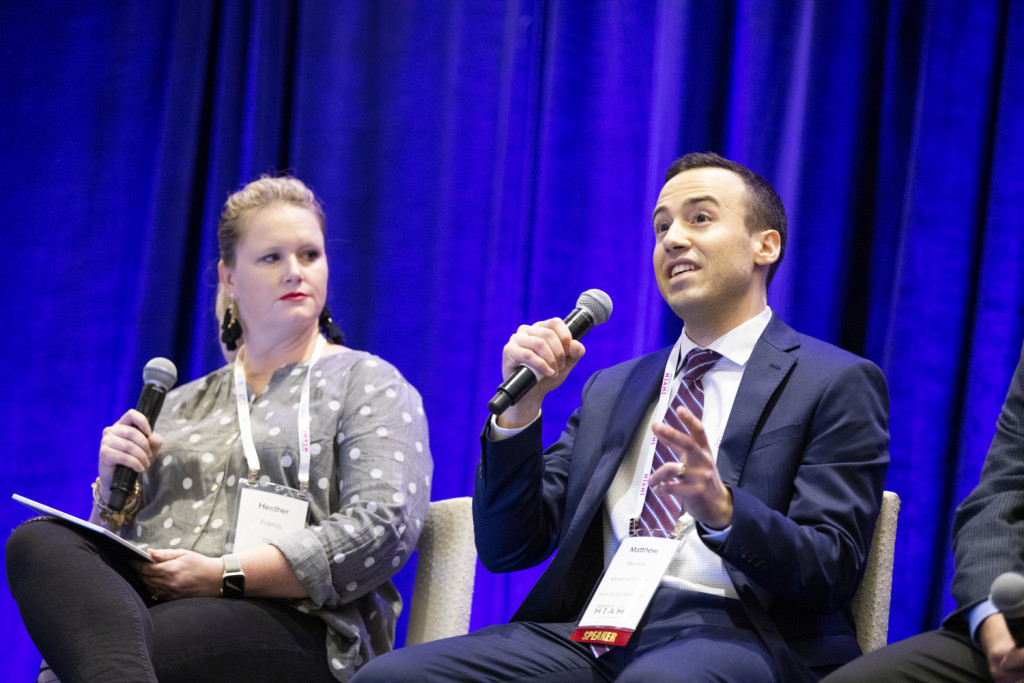
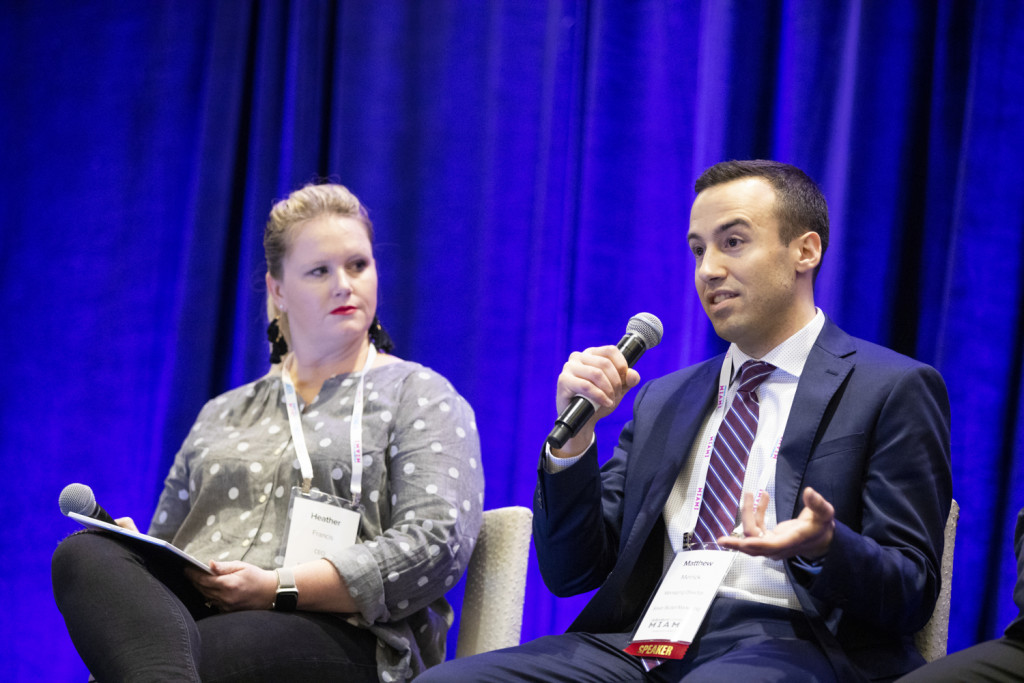
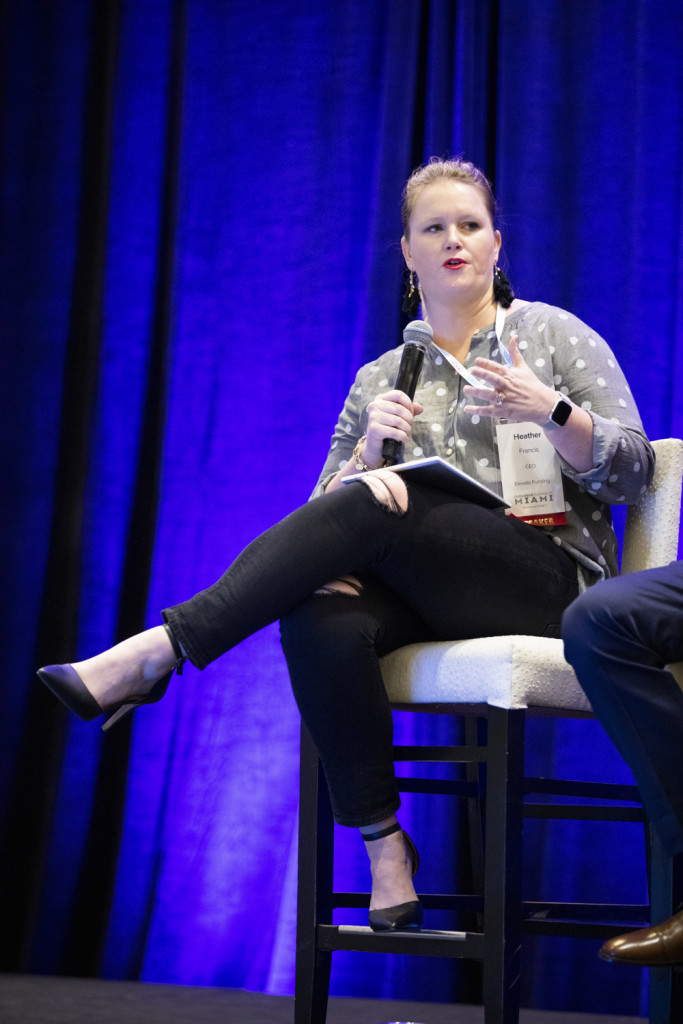
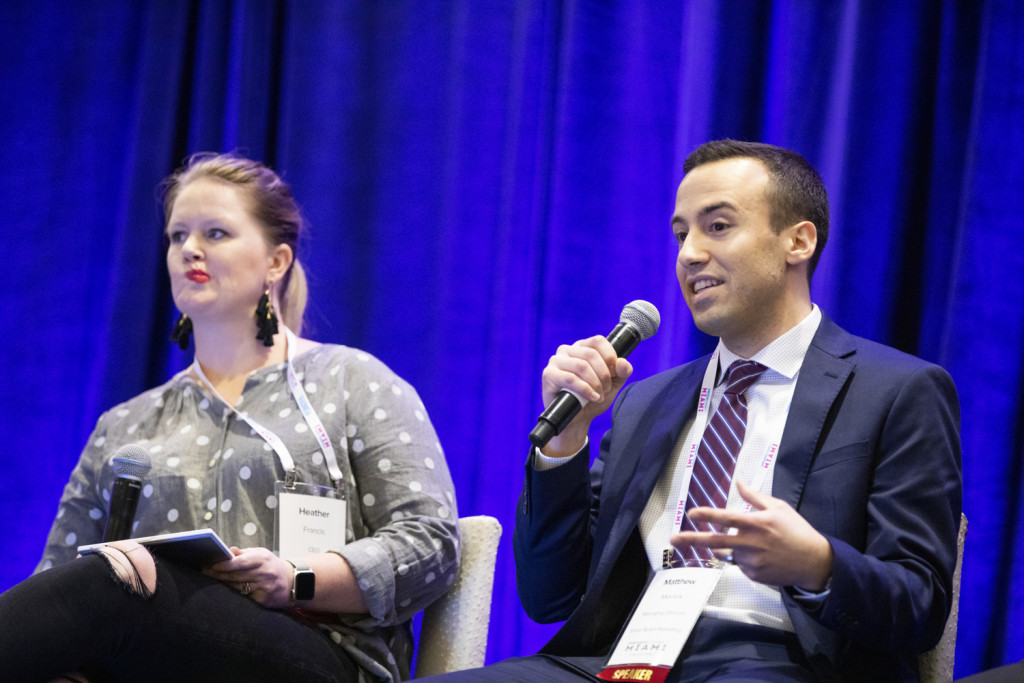
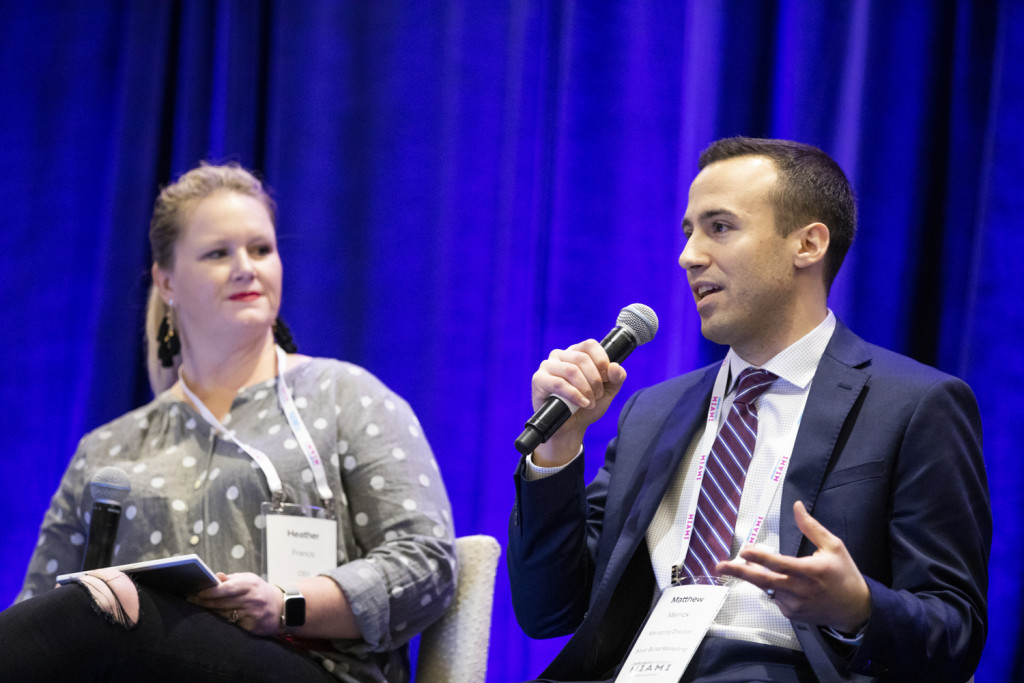
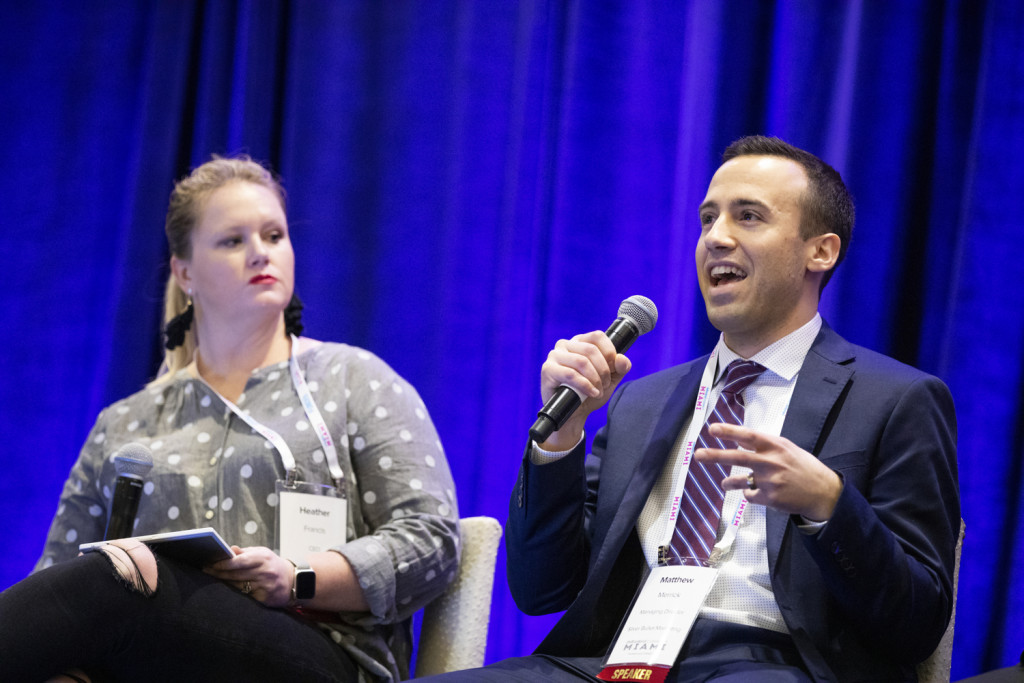






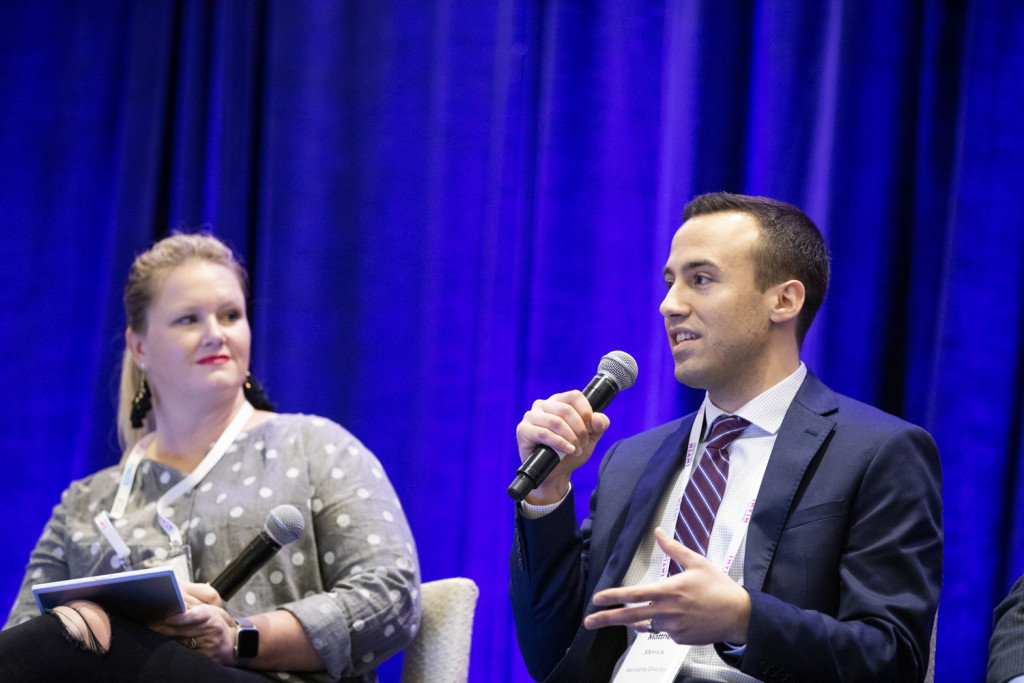


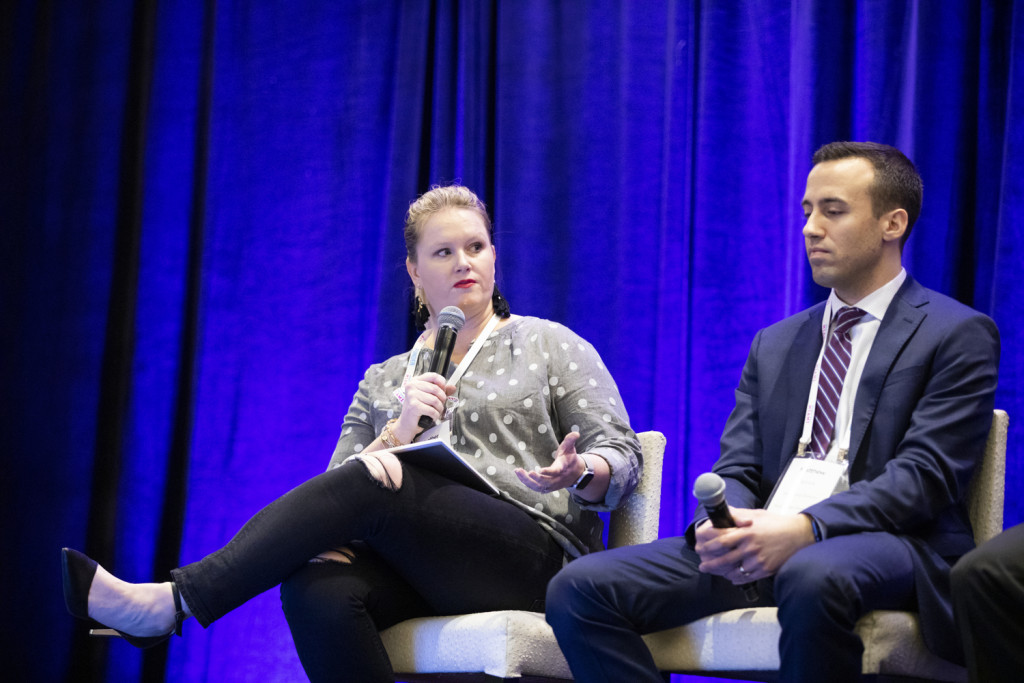




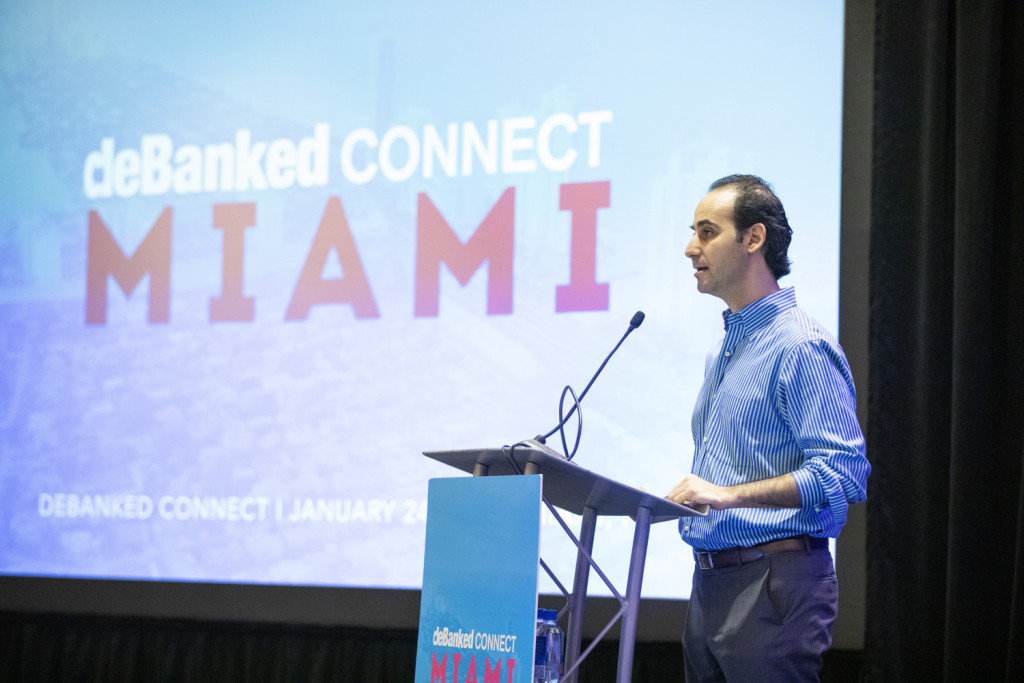







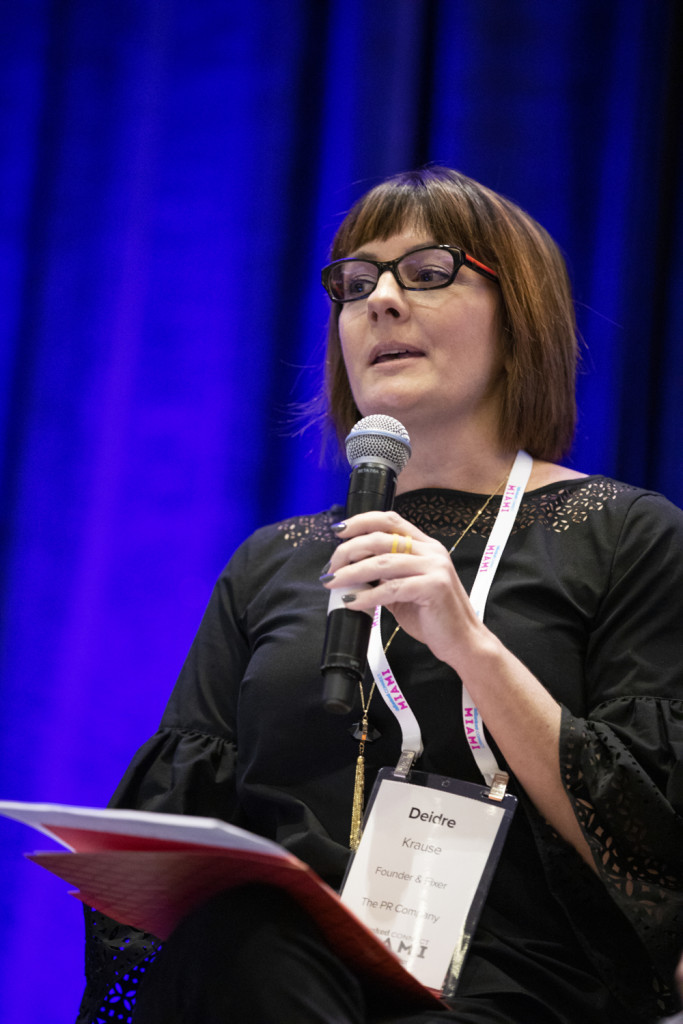
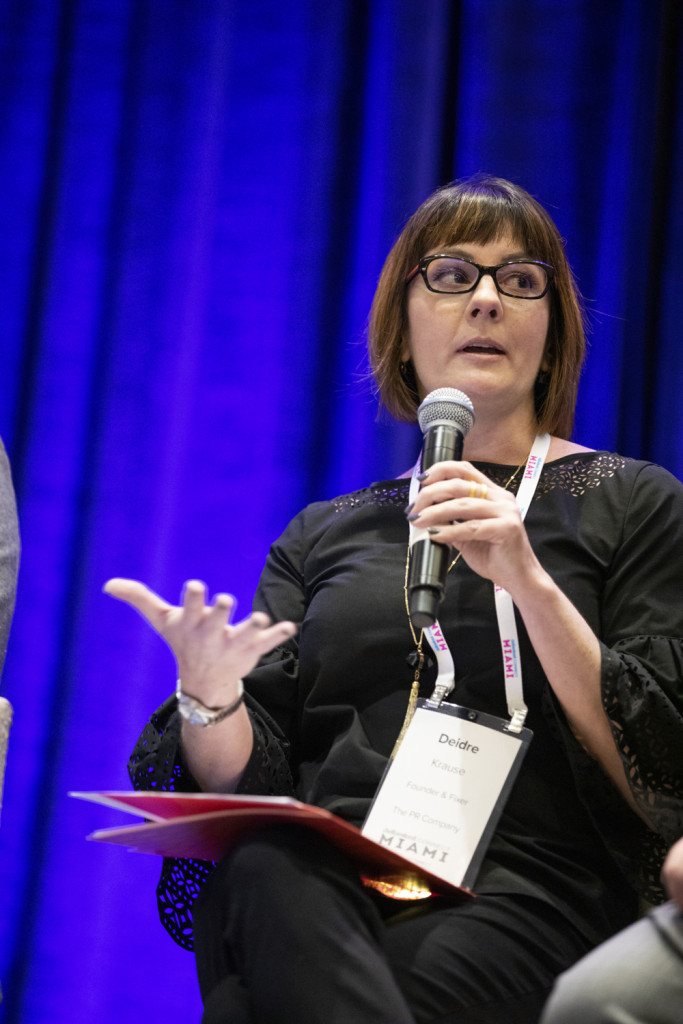
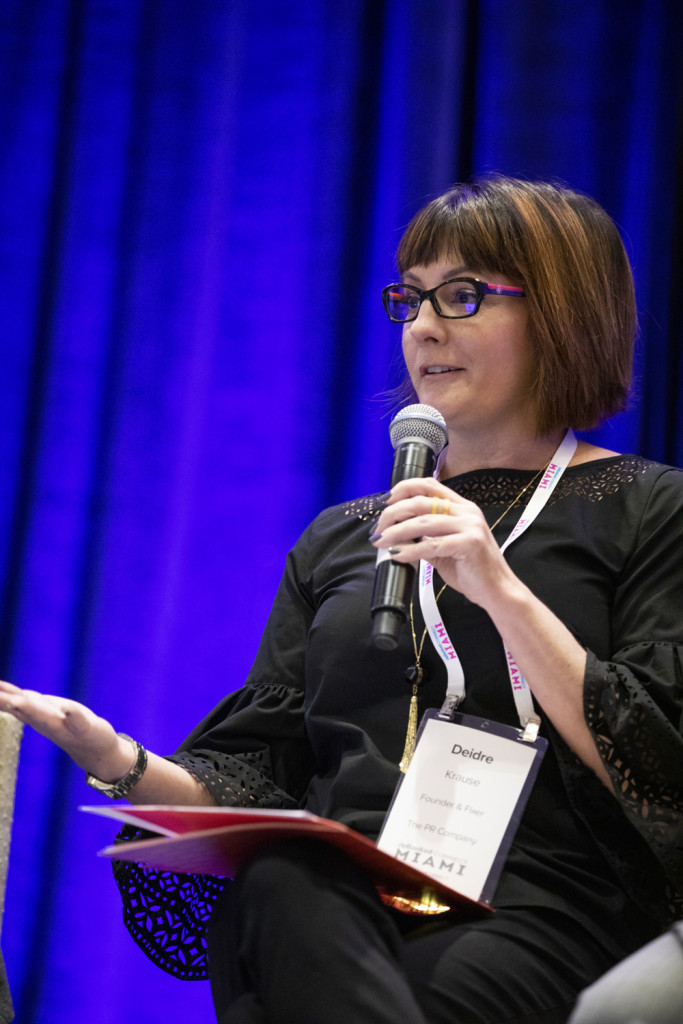





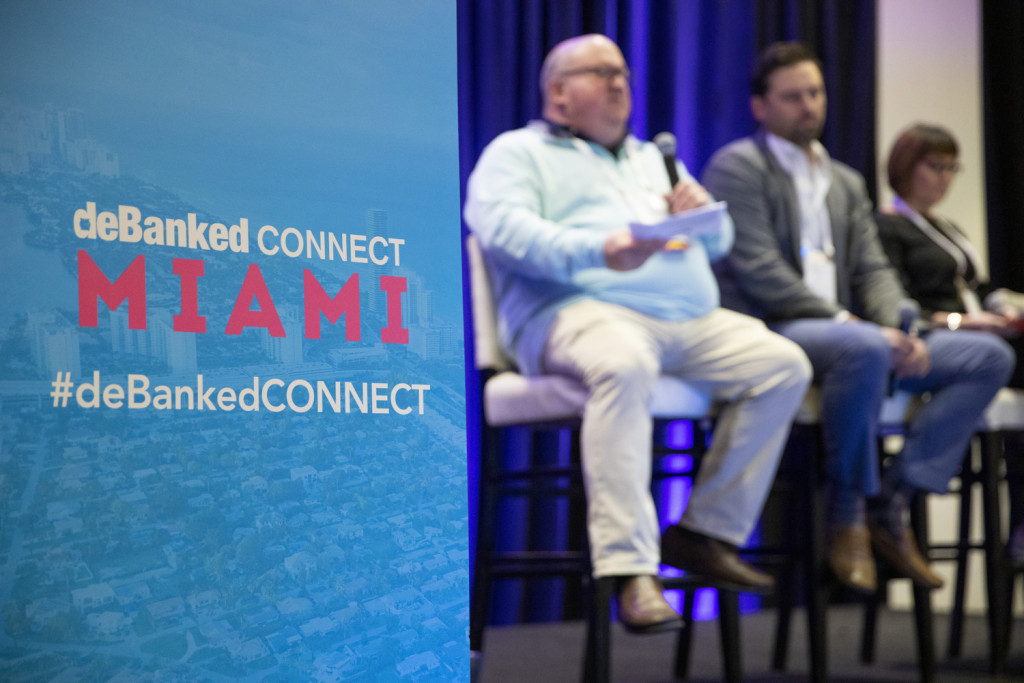





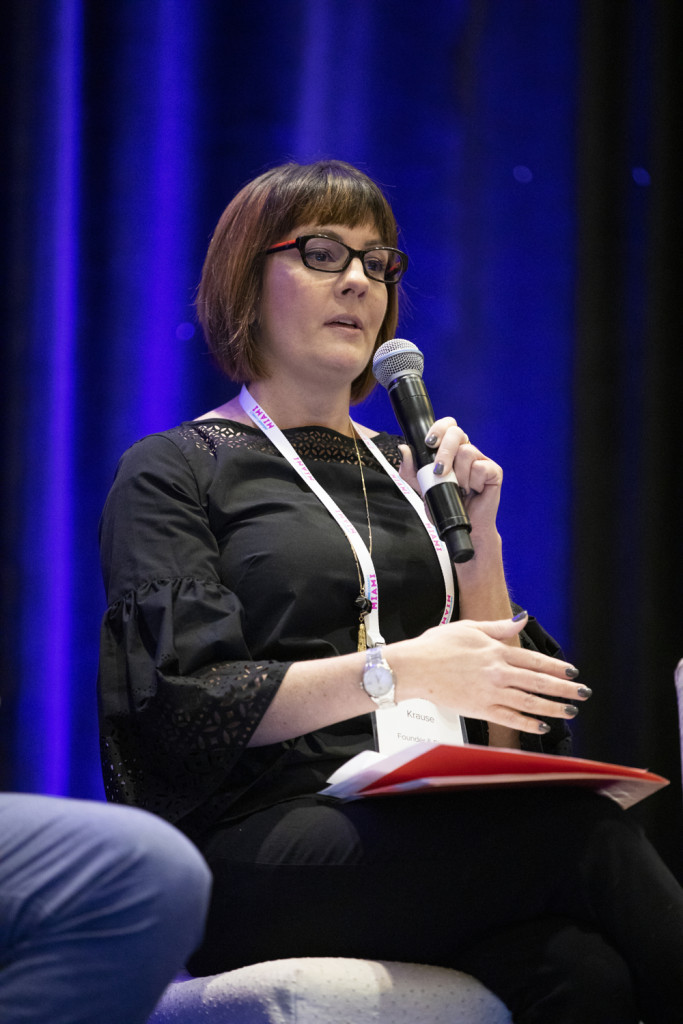
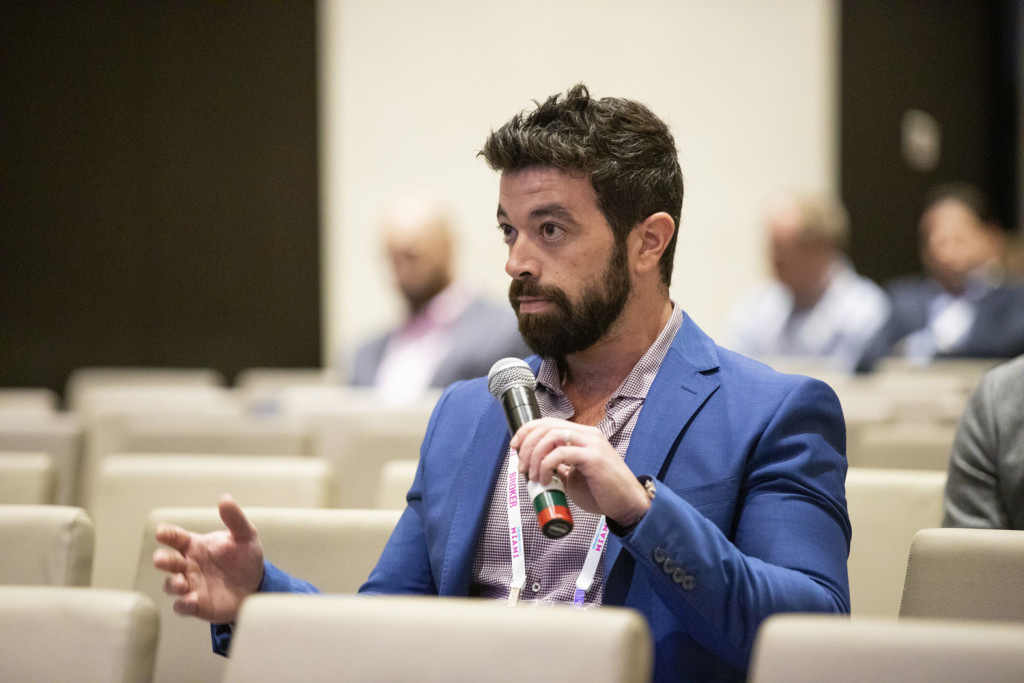
















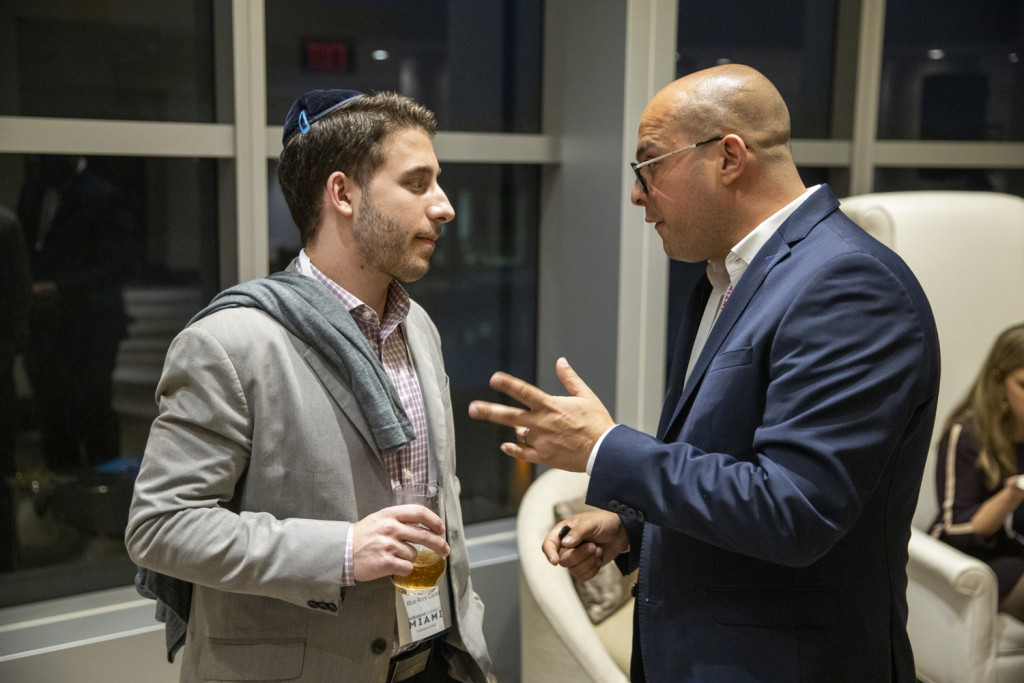











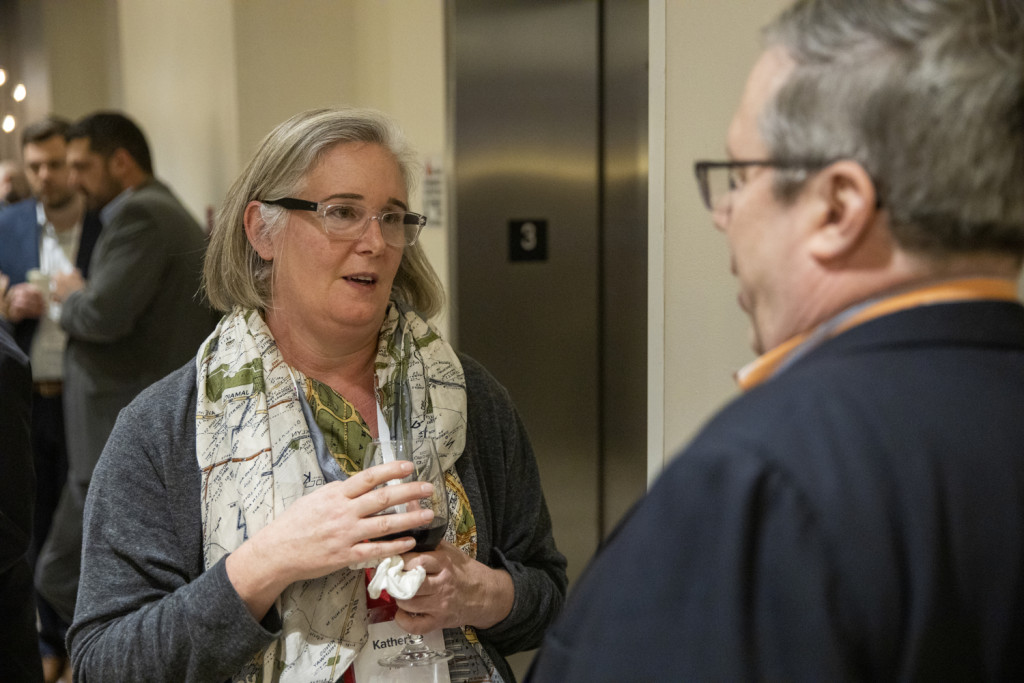






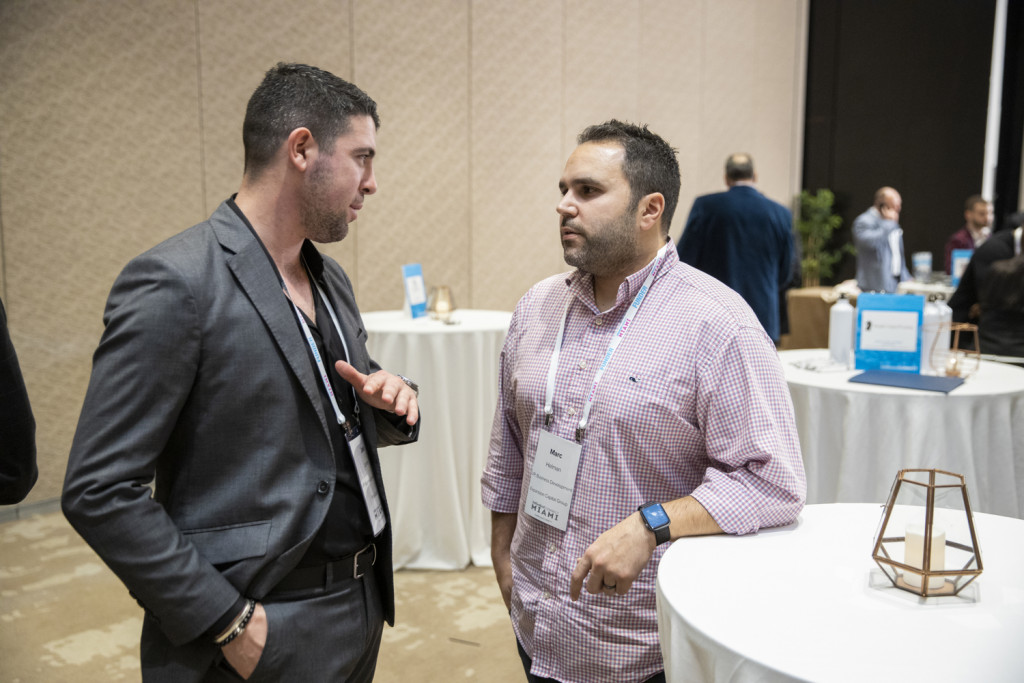
















































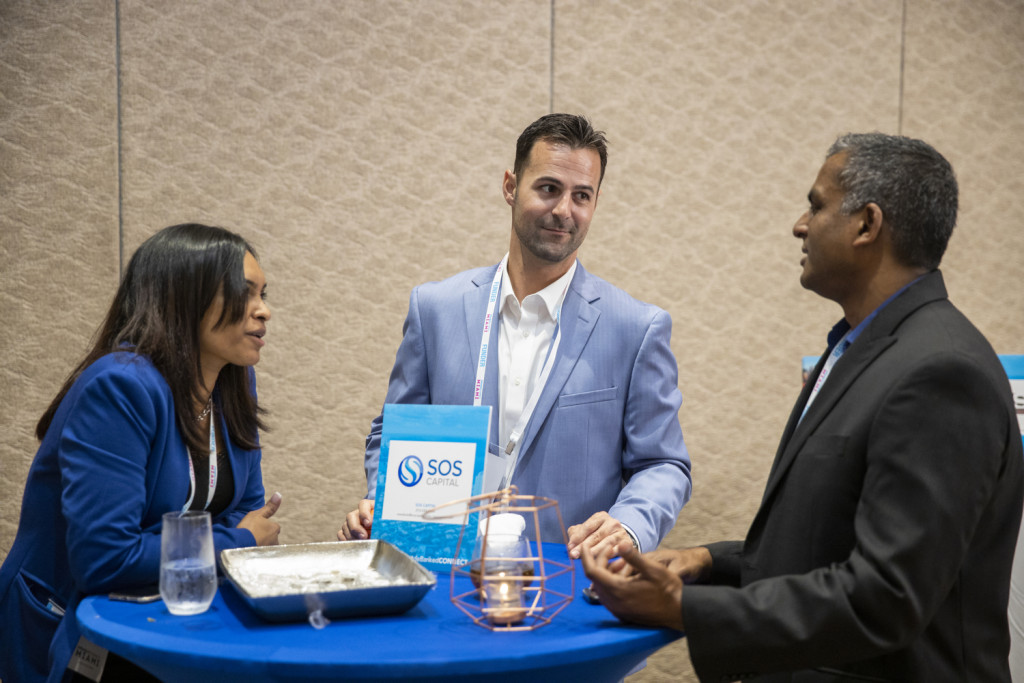



















Thanks For Coming to deBanked CONNECT Miami
January 26, 2019
We would like to thank everyone that sponsored and attended deBanked CONNECT Miami. We’ll publish the photos when we have them available. If you enjoyed the event, you’ll love the upcoming full day Broker Fair 2019 conference on May 6th in New York City at the Roosevelt Hotel. It will be our biggest crowd yet. Early bird pricing is available through February 1st, so don’t delay!
Check out our video highlight reel below of last year’s Broker Fair in Brooklyn, NY.
BFS Capital Surpasses $2 Billion in Financing
January 22, 2019 BFS Capital announced this morning that it has exceeded $2 billion in financing to over 22,000 small businesses across the United States, Canada and the UK.
BFS Capital announced this morning that it has exceeded $2 billion in financing to over 22,000 small businesses across the United States, Canada and the UK.
“This is a major originations milestone,” said Mark Ruddock, CEO of BFS Capital. “We’re incredibly proud to see these investments take root, as BFS Capital continues to solidify its position as a central source for financing small businesses and their everyday capital needs.”
BFS Capital provides business loans and MCA deals from $5,000 to $500,000 to a wide variety of merchants. In 2018, fourth quarter originations were the highest ever in the company’s 17-year history. And third quarter originations also represented the best third quarter in the company’s history.
“In 2018 we enhanced our sales and marketing programs and made significant advances in our underwriting models so that we could better serve small businesses,” Ruddock said.
Ruddock also said that they are constantly thinking of ways to be better partners to the ISOs. He said that they plan to speed up the process from lead to loan by 30% this year, so that, with continued improvements in technology, approvals can take a matter of minutes and eventually happen instantaneously. Currently, they make decisions within a matter of hours.
“We’re also trying to communicate more clearly with [our ISO partners] about what sorts of merchants we are more likely to fund than not, so that they can be more efficient themselves,” Ruddock said.
Apart from accelerating speed in approval time for certain financing, Ruddock said that BFS also excels in serving customers that he calls “diamonds in the rough,” or businesses that sometimes even other alternative lenders will reject because they don’t understand them.
“BFS will very often be in a position to look at a company that perhaps might look complicated to others, and be able to say ‘Yes, this is a deal that we will do,’” Ruddock said.
This process is a little less automated as it requires more creative thinking on the part of their underwriting team, Ruddock said. Founded in 2002 and headquartered in Coral Springs, FL, BFS also has offices in New York, California and the UK.
Capify Secures Massive Credit Facility from Goldman Sachs
January 16, 2019 Capify, which serves the UK and Australia markets, announced this morning that it has secured a £75 million (roughly $95 million) credit facility from Goldman Sachs.
Capify, which serves the UK and Australia markets, announced this morning that it has secured a £75 million (roughly $95 million) credit facility from Goldman Sachs.
“This credit facility validates our company as a leader in the marketplace and underlines the strength of our business model to provide simple, affordable and smart financial options to UK and Australian small businesses,” Capify founder and CEO David Goldin said.
The achievement is notable for a company that is not venture capital or private equity based.
“Capify is one of the leading small business providers in the UK and Australia,” said Pankaj Soni, Executive Director at Goldman Sachs Private Capital. “We have been impressed with the management team, business model and innovative finance solutions for small businesses [and] we look forward to supporting their growth in the years ahead.”
Capify provides MCA deals and business loans to small business merchants. Goldin told deBanked that MCA deals make up about 75% of Capify’s business in the UK, with about 25% in business loans. The ratio in Australia is the inverse, he said.
Goldin entered the UK and Australian markets in 2008 and said that they have become hyper competitive over the last three to four years. He acknowledged that both markets are still far smaller than the U.S. though.
“You don’t see these big crazy origination volumes [that you do in the U.S.]…[for us,] it’s about building a profitable, growing company.”
According to Goldin, another difference between the U.S. market and the UK and Australian markets is that the latter has embraced self-regulation much faster than the U.S. For instance, in Australia, there have been recommendations from semi-governmental organizations on how funders should perform, including the publishing of APR in contracts for business loans.
“These markets have moved quicker for self-regulation in the last two or three years than the U.S. market has moved in 10 years.”
This may be a matter of other countries learning from the experiences of the U.S., he said.
Goldin said that in addition to scaling Capify, the money from the facility will also be used to launch partner/broker programs in the UK and Australia. So far, the majority of Capify’s leads come from internal direct marketing efforts.
Capify employs more than 120 people divided between two offices, one in Manchester, England and the other in Sydney, Australia.
Goldin integrated the U.S. operations of Capify to Strategic Funding (now Kapitus) in 2017.
Why Strategic Funding Rebranded as Kapitus
January 15, 2019 Today, Strategic Funding announced the launch of a new brand identity, including a name change. Strategic Funding will now be called Kapitus.
Today, Strategic Funding announced the launch of a new brand identity, including a name change. Strategic Funding will now be called Kapitus.
“We had a name that was very well respected,” said Kapitus founder and CEO Andy Reiser. “Everybody loved our name, quite frankly. They loved it so much, they all copied it. You can’t trademark ‘Strategic Funding.’ It’s too generic.”
Kapitus, spelled this way, is not a word in any language, which makes it easier to trademark.
“We wanted to separate ourselves in a way that is clearly identifiable,” Reiser said. “It’s an easy one-word name [that] symbolizes stability and strength. It’s ‘capital from us,’ if you want to break it down.”
Reiser said that the company has been relatively quiet over the last three years, but they have been advancing all along, and they are particularly proud of their brand new ISO portal. According to Reiser, the new portal helps ISOs better understand their book at Kapitus and allows brokers to generate a contract quickly without having to call them. The company has an in-house marketing team, but well over 50% of its business comes from the ISO channel.
Kapitus provides a variety of financial products, including equipment financing (they have an in house equipment leasing division) and factoring (they have a small internal factoring group). They also offer business loans, lines of credit and MCA deals. But the company’s largest portion of its business – more than 15% – comes from its Helix Healthcare Financing product, which finances healthcare practitioners like doctors, dentists and veterinarians.
Unlike other funders of healthcare practitioners that may offer financing terms up to 18 months, Kapitus offers terms of up to 10 years as long as the merchant satisfies its requirements. The company also funds a considerable number of healthcare-related businesses, like medical equipment providers. Otherwise, Reiser said that Kapitus has a diversified mix of merchants, from restaurants to manufacturers.
Reiser said that about 15% of Kapitus’s business consists of deals above $150,000 for which they have a seperate team. They do deals as high as $750,000.
When operating under the Strategic Funding name, there was a payment servicing division of the company, called Colonial Servicing. That entity will remain, but will be woven into the new Kapitus name.
Founded in 2006, Kapitus employs 240 people divided among three offices. The headquarters is in New York and there is an office with about 30 people in Arlington, VA, and a Dallas-area office with about 35 people working in collections and customer service.
Kabbage Finances US Small Business Customers of Alibaba
January 14, 2019 Kabbage announced today that it has partnered with Chinese e-commerce giant, Alibaba, to provide financing to small businesses that purchase materials on the platform. The financing program, offered by Alibaba and powered by Kabbage, is called Pay Later.
Kabbage announced today that it has partnered with Chinese e-commerce giant, Alibaba, to provide financing to small businesses that purchase materials on the platform. The financing program, offered by Alibaba and powered by Kabbage, is called Pay Later.
“Financing at the point of sale requires a fully automated solution that can handle the immense volume of daily transactions that occur on Alibaba.com,” said Kabbage CEO Rob Frohwein. “We are incredibly impressed with the service and value that Alibaba.com delivers to American businesses and want to do all we can to support their important mission.”
According to the Kabbage announcement, Kabbage had a beta launch of Pay Later in June 2018 and it has so far delivered millions of dollars in financing to American small business. The business to business (B2B) financing product provides lines of credit up to $150,000, and according to Kabbage, each purchase financed via Pay Later creates a six-month term loan for the merchant with rates as low as 1.25% per month. Kabbage also said that there are no fees to maintain the line of credit, no order transaction fees and no early repayment fees.
This partnership is not the first of its kind. In February 2015, Lending Club announced a similar arrangement with Alibaba that offered funding to U.S. small business owners for point-of-sale transactions on the platform. Lending Club offered loans up to $300,000 and had an exclusive relationship with Alibaba for point-of-sale business financing. Kabbage told deBanked that their arrangement with Alibaba is not exclusive. Lending Club did not respond in time to explain their current relationship with Alibaba.
LendUp Gets a Shake-up
January 11, 2019
Among other company news, LendUp announced yesterday that it has formed a separate company called Mission Lane that will be devoted to scaling its credit card business. LendUp will continue to operate under its name and will focus on personal loans, education and savings opportunities, according to the announcement. Along with the division of LendUp, company co-founder and CEO Sasha Orloff is stepping down and is being replaced by Anu Shultes, the former General Manager of LendUp Loans.
“Both organizations are focused on helping get consumers on a path to better financial health,” Shultes said of LendUp and Mission Lane, “one will do this through offering loans, and the other through credit cards. I appreciate the Board’s confidence in me and am excited to lead this fantastic organization,” said Shultes.
According to the company announcement, Orloff, who co-founded the company with Jake Rosenberg, will remain involved in LendUp as a board member and in Mission Lane as an advisor. LendUp’s office is in Oakland, CA while the Mission Lane team is in San Francisco.
“Anu brings the perfect combination of background, skills and vision to her role as CEO,” said Orloff. “She’s an absolutely fearless leader, and she’s the right person to shepherd LendUp through its next stage.”
Shultes didn’t say if the company headcount has changed as a result of the creation of Mission Lane, but she said that they plan to grow both businesses. Former Chief Operating Officer of LendUp is interim CEO of Mission Lane, while the company looks for a permanent CEO.
Additionally, with the creation of the new company, LendUp announced that they had received an investment for an undisclosed amount that will be used to scale Mission Lane. The investment was led by LL Funds LLC and Invus Opportunities.
LendUp provides unsecured loans of up to $1,000 to subprime borrowers who might otherwise go to payday lenders. Last year, Orloff told deBanked that one’s credit score is based primarily on two factors: on-time repayment and access to credit that you don’t use.
“So we design our loans and our card products to help people make sure they’re paying on time and make sure that they’re only using the credit that they need.”
Orloff also said that LendUp places an emphasis on financial education and offers customers more money at lower rates if they take the company’s education courses.





























